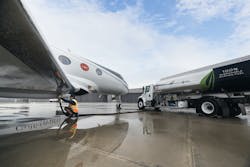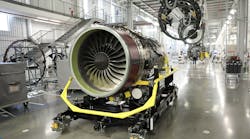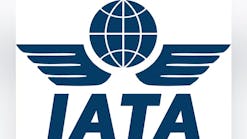Gulfstream G600 Completes Trans-Atlantic Flight Using 100% SAF
Gulfstream Aerospace Corp. has announced the successful completion of what it's calling the world’s first trans-Atlantic flight using 100% sustainable aviation fuel (SAF). The Nov. 19 flight took place on a Gulfstream G600 aircraft, which departed from Gulfstream headquarters in the United States (Savannah, Georgia) and landed 6 hours, 56 minutes later at Farnborough Airport in Hampshire, England.
The Nov. 19 mission showcases the potential for aviation’s future use of renewable fuels, which feature lower carbon, sulfur and aromatics. Data collected from the endurance flight will help Gulfstream and its key suppliers gauge aircraft compatibility with future low-aromatic renewable fuels, particularly under cold temperatures for extended flight durations.
“Gulfstream is innovating for a sustainable future,” said Mark Burns, president, Gulfstream. “One of the keys to reaching business aviation’s long-term decarbonization goals is the broad use of SAF in place of fossil-based jet fuel. The completion of this world-class flight helps to advance business aviation’s overarching sustainability mission and create positive environmental impacts for future generations.”
The SAF used on the flight was produced by World Energy and delivered by World Fuel Services. It was comprised of 100% Hydroprocessed Esters and Fatty Acids (neat HEFA), which has at least 70% lower lifecycle CO2 emissions than fossil-based jet fuel, helping to reduce aviation’s impact on climate. Additionally, this zero added aromatics fuel has a reduced impact on local air quality and very low sulfur content, which can reduce non-CO2 environmental impacts.
The aircraft was powered by Pratt & Whitney PW815GA engines, both using 100% SAF.
“Gulfstream continues to break new ground in the sustainable aviation space, and we applaud them for completing this mission as we work to validate the compatibility of our engines with unblended SAF,” said Anthony Rossi, vice president, Sales & Marketing, Pratt & Whitney Canada.
"Collaborating with airframe manufacturers such as Gulfstream is an important part of our long-standing efforts to ensure SAF compatibility across all our engines, which have already been certified to operate with up to 50% SAF blends for more than a decade. With this transatlantic flight, we are effectively demonstrating both engine and aircraft functionality in a fully operational setting to support future specifications for 100% SAF, which will be critical to achieving a more sustainable future of net-zero CO2 emissions for aviation in the decades ahead. Future 100% SAF operational approval will add to the versatility, reliability, and fuel efficiency of the PW815GA engine to benefit Gulfstream and our customers."
Other key partners supporting this milestone include Honeywell, Safran and Eaton.
“We’d like to thank all our partners for their help in making this milestone flight happen, and for their ongoing partnership in collaborating with the extended SAF community to champion the aviation industry’s path to 100% SAF usage,” said Burns.


